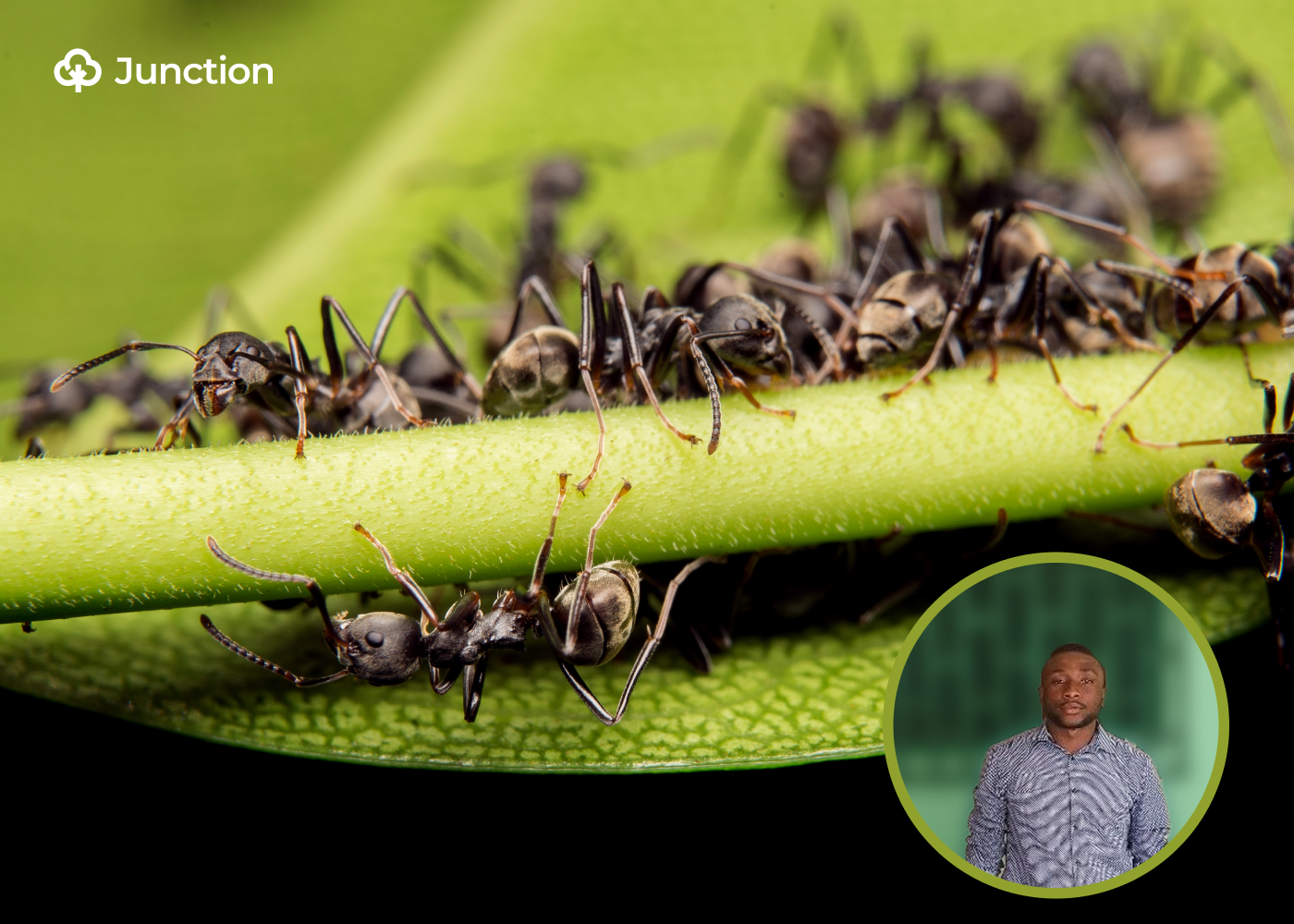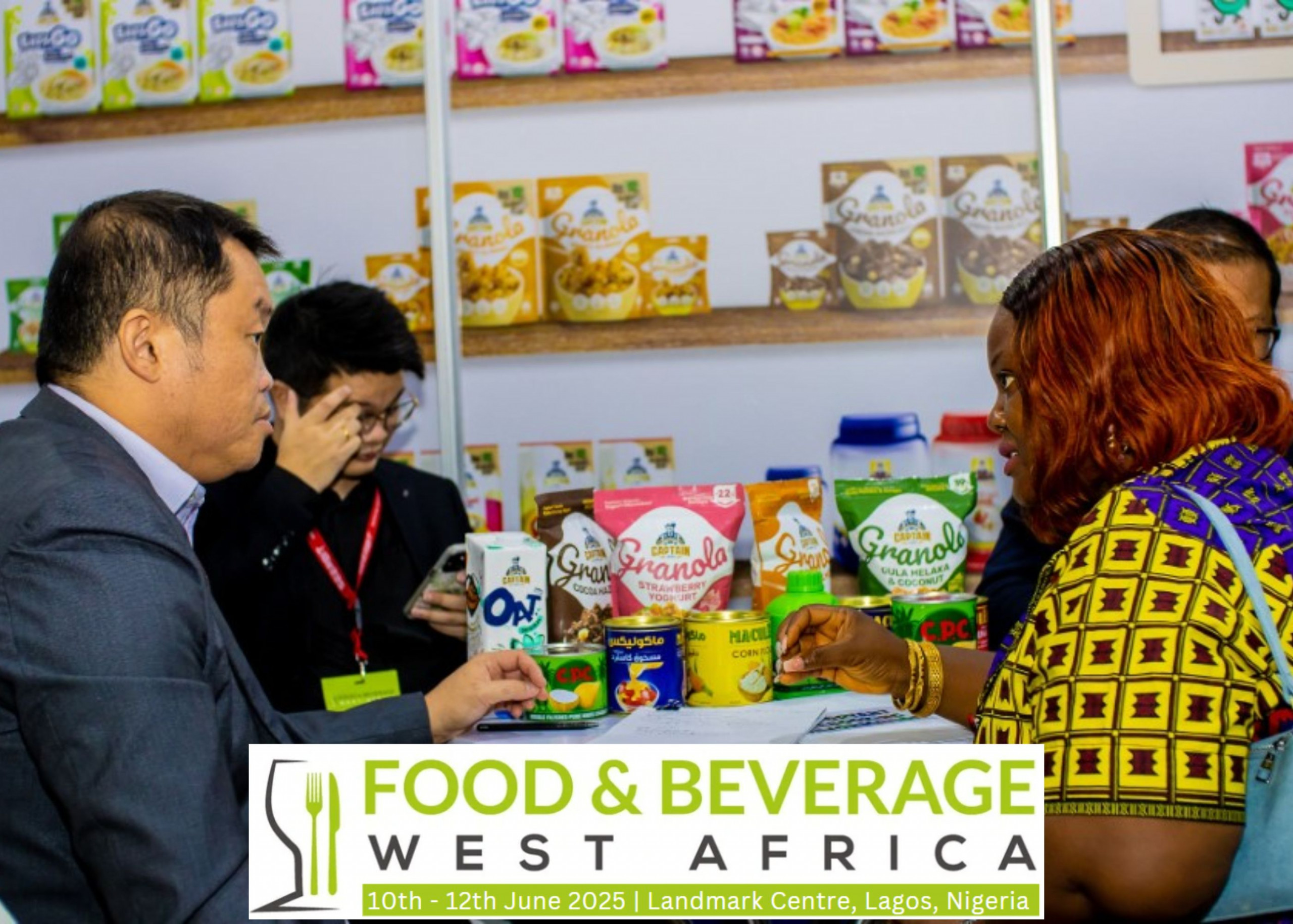Nigeria’s livestock industry, a vital component of its agricultural sector, has been grappling with escalating feed costs that threaten its sustainability.
For example, in 2024, the price of poultry grower feed surged by over 270%, pushing many farmers to abandon their livelihoods due to diminishing profits and heightened security risks.
This surge in feed prices has not only strained individual farmers but also poses a significant threat to national food security, with millions of Nigerians facing acute food shortages exacerbated by rising costs.
In response to this pressing challenge, innovative agripreneurs like Tolu Ajibola are pioneering sustainable solutions to revolutionise livestock feed production in Nigeria.
As the owner of Tolu Ajibola Farms, his journey into agriculture began when he started rearing poultry and fish as a secondary school student. His passion led him to start the Young Farmers Club with the help of his agriculture teacher, Mr Miguna. This early exposure to farming planted the seeds for his future career.
Determined to pursue his passion, he sought admission into the Federal University of Technology, Minna, to study agriculture but was offered a different course. Unwilling to compromise, he decided to study at the Federal University Dutsin-Ma, Kastina State, where he earned his degree in Agriculture. His university years reinforced his dedication to farming, but it was during the COVID-19 lockdown that he made a groundbreaking discovery, one that would shape his journey as an agripreneur.
Tackling the livestock feed crisis
The high cost of livestock feed has long been a major challenge for farmers in Nigeria, often leading to unsustainable business practices and mass exits from the sector.
Already managing a maize farm and fish farm, Tolu needed an alternative source of feed that was affordable for him and other smallholder farmers. During the COVID-19 lockdown, Tolu turned to YouTube, researching ideas that led him to the potential of Black Soldier Fly (BSF) farming as a cost-effective and sustainable alternative for animal feed.
BSF larvae serve as a high-protein alternative to conventional feed ingredients like fish meal and soybean meal. However, implementing the system came with challenges. His first trial in 2022 failed due to the unstable climate in Kaduna, where he was based. Unlike the South, where temperatures remain relatively warm, Kaduna’s fluctuating temperatures hindered BSF reproduction.
“The flies didn’t survive because of the unstable climate in Kaduna,” he explained. “I realised I needed a controlled environment to make it work.”
Undeterred, Tolu invested in creating a controlled environment with regulated temperature, humidity, and airflow. This innovation allowed him to successfully farm BSF larvae and produce high-quality feed for poultry, fish, and pigs. Today, his BSF larvae feed is not only more affordable than traditional feed but also highly nutritious, making it a game-changer for small-scale farmers.
Environmental and economic benefits of black soldier fly larvae
One of the most remarkable aspects of the BSF feed is its environmental impact. The larvae thrive on organic waste, turning what would otherwise be discarded into valuable protein-rich feed. This waste-to-feed system not only reduces the cost of livestock production but also addresses the issue of waste management in Nigeria. According to the Food and Agriculture Organization (FAO), organic waste management is a critical challenge in developing countries, and farms like Tolu’s offer a sustainable solution. BSF larvae thrive on organic waste, making them both environmentally friendly and economical.
The economic benefits are equally significant. By using BSF larvae, farmers can reduce their reliance on expensive soybean meal (SBM) and other conventional feed ingredients. The larvae contain 39–42% protein, making them an excellent supplement for poultry, fish, and pig farmers. Unlike traditional feeds, which rely on expensive and often imported protein sources, for poultry farmers, BSF larvae serve as an alternative protein source when combined with other feeds.
“Instead of using a full bag of SBM, farmers can use half a bag of SBM and half a bag of BSF larvae. This reduces costs without compromising on nutrition,” Tolu explained.
For fish farmers, larvae can be fed directly once the fish reach 200–300 grams, significantly reducing feed costs. In pig farming, BSF larvae can even serve as a primary feed source, provided production meets pigs’ daily consumption needs.
To ensure a steady supply, Tolu and his team meticulously maintain BSF reproduction cycles. Partnering with Kaduna-based company Graysop, they regulate breeding environments to sustain consistent output. The impact has been remarkable, offering farmers a reliable and affordable alternative to traditional feed ingredients.
Expanding access and affordability
Affordability and accessibility are central to Tolu’s business model. Understanding farmers’ struggles as a smallholder farmer himself, he strategically minimises production costs, ensuring that BSF larvae remain a viable option. While traditional livestock feeds continue to rise in price, his model provides a sustainable, locally sourced alternative at significantly lower rates. In Kaduna, his BSF larvae sell for around ₦600 per kilogram, compared to ₦800–₦900 per kilogram in Lagos.
Through collaboration with other BSF farmers, he has established a network that helps distribute larvae across Nigeria. Farmers in Lagos, the South-South, or the North Central region can connect with BSF producers in their locality, reducing transportation costs and ensuring faster delivery. This decentralised approach fosters a growing community of sustainable feed producers across the country.
The role of technology in modern agriculture
Tolu’s work goes beyond farming BSF larvae. As an agricultural consultant, he incorporates technology into his practice to help farmers tackle emerging challenges.
“We use AI to diagnose diseases and nutrient deficiencies in crops,” he explains. “This allows us to provide precise recommendations, such as upgrading fertilisers or using specific pesticides.”
Tolu’s approach is a far cry from the traditional trial-and-error methods that many farmers rely on, and it’s helping to modernise agriculture in Nigeria.
In addition to his consulting work, Tolu is collaborating with a tech company to develop an app called Terra IQ, a platform that connects farmers with buyers, facilitating the sale of agricultural produce.
“We’re not middlemen,” Tolu clarifies. “We’re intermediaries who help farmers get the best value for their crops.” This tech-driven approach is part of Tolu’s broader vision to make agriculture more accessible and profitable for young Nigerians.
Winning the Farmers for the Future grant
Ajibola’s innovative work caught the attention of the Farmers for the Future (F4F) programme, which awarded him a grant to further develop his farm.
“The grant allowed us to install solar panels and create a fully controlled environment for our BSF larvae production,” he says. This investment has significantly boosted his farm’s productivity and positioned him as a leader in sustainable agriculture.
The F4F grant has also enabled Tolu to expand his reach. Currently, his farm produces BSF larvae for farmers in Kaduna State, but his long-term goal is to scale up production to 1,000 tons per day.
“Once we reach that target, we can expand beyond Kaduna and serve farmers across Nigeria,” he explains. This ambitious vision reflects Tolu’s commitment to transforming the livestock feed industry and making agriculture more sustainable.
A call to action for young farmers
For aspiring agripreneurs, Tolu’s story offers valuable lessons. He emphasised that success in agriculture is not solely driven by profit but by the passion to solve real problems. Agriculture presents many challenges, but those who can identify and address gaps in the industry will always find opportunities.
“In agriculture, the risks are high, but so are the rewards. The key is to be persistent, innovative, and ready to adapt. If you solve a problem, money follows,” he advises.
As Nigeria faces increasing food security challenges, the role of young, innovative farmers has never been more crucial. Tolu Ajibola’s work demonstrates that with the right approach, agribusiness can be both profitable and impactful. For those willing to embrace innovation and sustainability, the future of Nigerian agriculture holds limitless potential.




This is so exciting and educating to read.
Kudos to Tolu for the amazing work you’re doing, and cheers to achieving set targets, and surpassing them!
You, really do inspire me.
As always, here is another story beautifully told, Chiwendu. It’s always very great to read your piece. Well done!
Thank you for reading!
Wow, this is very interesting and impressive, I’m also doing some research on maggot farming, and am fully ready to dive into it, I wish I meet tolu Ajibola in person one day. I’m really impressed